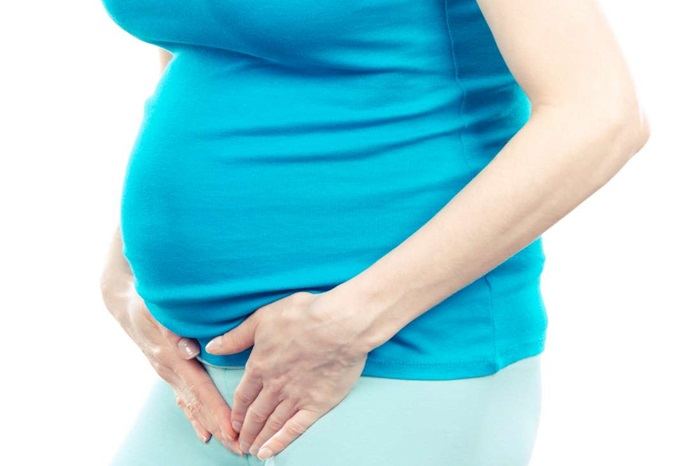Yeast infections, also known as candidiasis, are common during pregnancy. The hormonal changes and immune system adjustments that occur during pregnancy can make women more susceptible to these infections. Understanding the causes and preventive measures is crucial for maintaining both maternal and fetal health. This article delves into the various factors that can contribute to yeast infections during pregnancy.
Hormonal Changes
Hormonal fluctuations during pregnancy significantly impact the vaginal environment. The increased levels of estrogen and progesterone create conditions that favor the growth of yeast.
Elevated Estrogen Levels: High estrogen levels can increase glycogen production in the vaginal cells. Glycogen is a sugar that yeast feeds on, leading to an overgrowth of yeast cells.
Progesterone: This hormone can weaken the immune response, making it harder for the body to fight off yeast infections.
Immune System Changes
Pregnancy naturally suppresses the immune system to protect the developing fetus. This immunosuppression can make pregnant women more vulnerable to infections, including yeast infections.
Weakened Immune Response: A reduced ability to combat infections allows yeast to proliferate more easily.
Increased Susceptibility: Pregnant women are generally more susceptible to infections due to the overall suppression of their immune system.
Antibiotic Use
Antibiotics can disrupt the natural balance of bacteria and yeast in the body. When antibiotics kill off beneficial bacteria, it can lead to an overgrowth of yeast.
Broad-Spectrum Antibiotics: These antibiotics kill a wide range of bacteria, including the beneficial ones that keep yeast growth in check.
Disruption of Vaginal Flora: The imbalance created by antibiotics can allow yeast to multiply unchecked.
High Blood Sugar Levels
Elevated blood sugar levels during pregnancy, especially in cases of gestational diabetes, can create an environment conducive to yeast growth.
Increased Glucose in Vaginal Secretions: High blood sugar can lead to higher glucose levels in vaginal secretions, providing more food for yeast.
Gestational Diabetes: This condition increases the risk of recurrent yeast infections due to consistently high blood sugar levels.
Tight Clothing and Synthetic Fabrics
Wearing tight clothing and synthetic fabrics can create a warm, moist environment that promotes yeast growth.
Lack of Air Circulation: Tight clothing can reduce air circulation, increasing moisture and warmth.
Synthetic Fabrics: These fabrics do not absorb moisture well, leading to a damp environment ideal for yeast proliferation.
Increased Vaginal Discharge
Pregnancy often leads to an increase in vaginal discharge, which can alter the vaginal pH and contribute to yeast infections.
Changes in pH: The altered pH can disrupt the balance of bacteria and yeast.
Moist Environment: Increased discharge can create a moist environment, encouraging yeast growth.
Hormone Replacement Therapy (HRT)
Some pregnant women may undergo hormone replacement therapy, which can increase the risk of yeast infections.
Supplemental Hormones: Additional hormones can exacerbate the hormonal changes already occurring during pregnancy, further promoting yeast growth.
Altered Vaginal Environment: HRT can alter the vaginal environment in ways that favor yeast overgrowth.
Dietary Factors
Diet can play a role in the development of yeast infections during pregnancy. Consuming a diet high in sugar and refined carbohydrates can contribute to yeast overgrowth.
High Sugar Intake: Sugar is a primary food source for yeast, and high sugar intake can promote its growth.
Refined Carbohydrates: These can quickly convert to sugar in the body, providing more food for yeast.
Stress
Stress can affect the body’s immune system and hormonal balance, potentially leading to yeast infections.
Weakened Immune Response: Chronic stress can weaken the immune system, making it harder to fight off infections.
Hormonal Imbalance: Stress can also disrupt hormonal balance, contributing to conditions that favor yeast growth.
SEE ALSO: Can Stress Cause High Blood Pressure in Pregnancy?
Poor Hygiene Practices
Poor hygiene practices can increase the risk of yeast infections during pregnancy.
Infrequent Changing of Pads or Liners: Not changing sanitary pads or liners frequently enough can create a moist environment conducive to yeast growth.
Improper Wiping: Wiping from back to front can introduce bacteria from the anus into the vagina, disrupting the natural balance and promoting yeast infections.
Use of Certain Products
Certain products, such as scented soaps, douches, and bubble baths, can irritate the vaginal area and disrupt its natural balance.
Irritating Chemicals: Scented products can contain chemicals that irritate the delicate vaginal tissue.
Disruption of Natural Flora: Douches can wash away the beneficial bacteria that help keep yeast growth in check.
Sexual Activity
Sexual activity can introduce new bacteria and other microbes into the vaginal area, potentially leading to yeast infections.
Transmission of Yeast: Yeast can be transmitted between partners during intercourse.
Condoms and Lubricants: Some condoms and lubricants contain ingredients that can irritate the vaginal area and disrupt its natural balance.
Preexisting Conditions
Certain preexisting conditions can increase the risk of yeast infections during pregnancy.
Autoimmune Disorders: Conditions that affect the immune system can make it harder for the body to fight off yeast infections.
Chronic Illnesses: Chronic conditions, such as diabetes, can increase susceptibility to infections, including yeast infections.
Preventive Measures
To reduce the risk of yeast infections during pregnancy, consider the following preventive measures:
Maintain Good Hygiene: Practice proper hygiene, including regular changing of pads or liners and wiping from front to back.
Wear Breathable Clothing: Choose loose-fitting, breathable clothing made from natural fabrics like cotton.
Manage Blood Sugar Levels: Keep blood sugar levels under control, especially if you have gestational diabetes.
Avoid Irritating Products: Use unscented soaps and avoid douches and bubble baths.
Practice Safe Sex: Ensure good hygiene before and after sexual activity and use condoms if necessary.
Stress Management: Practice stress-reducing techniques, such as yoga, meditation, or deep breathing exercises.
Healthy Diet: Consume a balanced diet low in sugar and refined carbohydrates.
Conclusion
Understanding the various factors that can cause yeast infections during pregnancy is crucial for prevention and management. By being aware of these factors and taking preventive measures, pregnant women can reduce their risk of developing yeast infections, ensuring a healthier pregnancy for both themselves and their babies.


